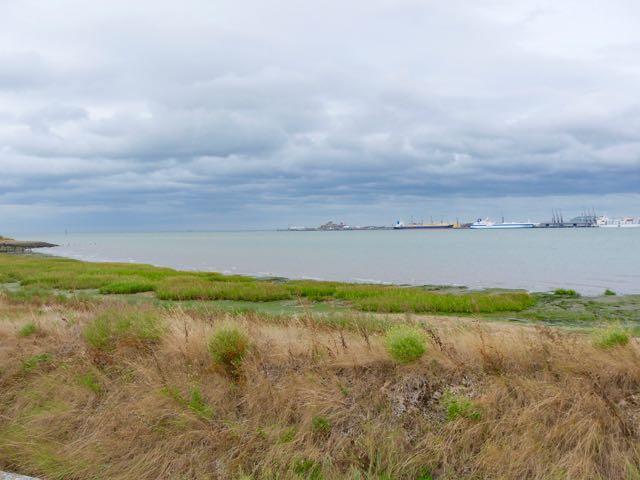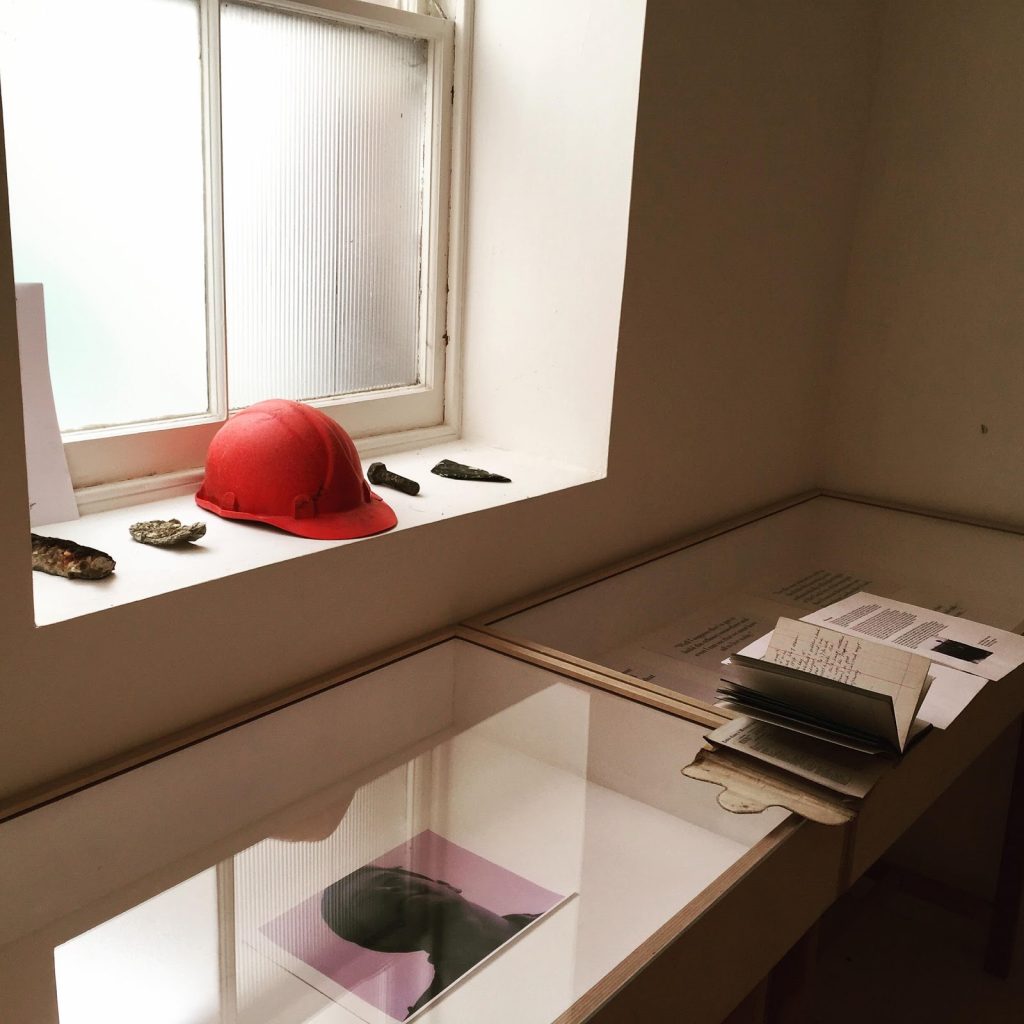Anna Falcini, currently a Fine Art, practice-based Ph.D. student studying at the University for the Creative Arts in Canterbury, Kent, attended teh CREST Summer School in 2018. Here she reflects on the experience and how the topics related to her research. The Summer School returns on 17-18 September 2019 under our new name, GuildHE Research.

‘This academic year, I am about to embark on the final year of my PhD which feels like climbing a mountain and as I near this final stretch, I decided to take a moment to think about what is beyond this research project and how best I might use the skills and opportunities from this period of study. As I was circling around this idea, into my email came an invitation to apply to attend the CREST summer school.
Initially, I hesitated and put aside the idea of going. At this point in my studies I decided that I needed to focus on the task in hand. The CREST programme, however, mentioned the words ‘research’ in the same breath as summer school and London and there’s nothing like those words to hook me in, so I revised my plans and applied to go.
My PhD is a Fine Art Practice based project that is exploring the atmosphere of The Hoo Peninsula, a liminal landscape that sits between the Thames and Medway estuaries.
When I started the project, not only did I want to develop a focused study of the area but also could see the PhD would be an asset in my academic career as a Lecturer in Fine Art. I’d continued to teach part time but as I got deeper into my PhD project, I felt that teaching was just one of many options and I could be thinking too conventionally. The question for me was, can I apply this research to other disciplines and where might it be useful, other than me standing on a windswept North Kent marsh, and mumbling about its atmosphere?
Over the two days we had a packed programme of presentations, activities and discussions as well as a visit to the Wellcome Trust, a personal highlight for me. In between the programme were opportunities for informal conversations with the other delegates, research students from a broad range of subjects. I found that engaging with others outside of my discipline was a very positive experience. On the first day, after a round of presentations we had to spend 2 minutes giving presentations about our research to our table. It was a useful exercise in being able to share your research to an audience who is not familiar with your field of work and it was also fascinating to hear about the research that other students were doing.
On Day 1 we had a panel of speakers talking about ‘Research beyond the Academy’ where non-profit and social research organisations presented a number of talks about their work with academic and non-academic research. Although much of this work was in the field of social policy, there was nonetheless scope to use skills and knowledge acquired through the Ph.D. process in this area.
In the afternoon, the session ‘Doing the Work’ introduced the resources of the British Library with their Research Development Manager, Amelia Roper. Having attended a day workshop about researching at the British Library in 2016, I wasn’t sure how useful this would be for me, but I found the session informative and a refresher of what an amazing resource the British Library is. I was particularly interested in accessing their collection of maps to explore how the landscape I am studying in North Kent, has changed over time. I asked a question about the maps and this led to gaining some very valuable information for my research.

A talk, which rounded off Day 1, ‘Open Access Publishing’, was a fascinating presentation where I was enlightened about the potential for publishing research outside of the formal channels of journals, which can be expensive and competitive. Hosted by Megan Hardeman, from Figshare, it gave tips and insights into how to get your research out there and visible through open access publishing.
After an excellent day with my mind piqued by lots of pathways and ideas for utilizing my research, the group headed off to Kings Cross Station for a meal in a pub, overlooking the station platforms. It was a lot of fun to share a meal with the delegates and organisers and conversations that had started during the day, flowed into the night.
Day 2 started with the group a little depleted, as the night’s activities had taken its toll on some but the early birds were treated to a brilliant talk called ‘Engaging with Parliament’ by Sky Yarlett, Senior Education and Engagement Officer. Sky made what potentially could be the very dry subject of Parliament, highly informative and entertaining whilst conveying respect and admiration for this institute of democracy. In our groups we were given a number of current research policy subjects that we had to do an activity on and present to the larger group at the end. This brought into focus the potential value of research and how it could be applied to all kinds of subjects.
Following on from that was a session at the Wellcome Trust and Collection, with talks from a number of staff about their archives, projects and funding streams. Originally developed by Henry Wellcome, the trust holds a staggering one million objects in their archive and presents its collections through highly innovative exhibitions such as ‘The Pharmacy of Colour’ that was on display during our visit.
One of the talks demonstrated the value of past projects that had been archived at the trust, displaying two valuable collections from the Keith Kennedy and Audrey Amiss Archives, which we were able to view and handle. Kennedy had been an artist doing pioneering work in the NHS with art therapy and Audrey Amiss was an artist who had suffered a mental breakdown and had literally itemized her life through a series of artist’s books.
A talk by Alice White, part of the Digital Editorial Team, introduced me to the world of Wikipedia amongst other items and the value of contributing to the site. Alice mentioned all sorts of useful information and tools for researchers including Wikicommons and Wikidata with images being available for free. This is highly useful as a student working with visual media where copyright can be a common problem.
The final sessions were devoted to thinking about the impact of our research and sharing what we do. The National Coordinating Centre for Public Engagement (NCCPE) asked us to think about our research in the context of purpose, people and process. Jenn Chubb a Research Fellow at the University of Sheffield, discussed the impact of our research, how to embed it and think about who might benefit from the research.
It was pertinent to end on this thought and considering what is the value of my research and where might I be able to take it beyond the traditional routes of a Fine Art practice. The CREST summer school, was a valuable 2 days in which to both focus on the purpose of my research but also to extend outwards to territory that was less familiar but equally beneficial to utilizing my project. Maybe I can begin to appreciate the view from the top of this mountain?
Anna’s visual art practice investigates a number of interests including archives, the ephemeral and language. Her research project is about an area of land called the Hoo Peninsula in North Kent on the Thames estuary and the particular atmospheric properties that can be articulated through a multi-disciplinary fine art methodology. Anna is a recent recipient of an Arts Council Wales award for a project about the letters of the late Welsh artist, Gwen John that will be exhibited in 2019 at Oriel Davies Gallery.
If you would like to get in touch with Anna and find out more about her work drop her a line at Twitter @AnnaFalcini or follow her Instagram account @annafalcini


Recent Comments